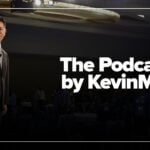Take a look in your medicine cabinet. What you see isn’t a sign of weakness; it’s a testament to one of the greatest partnerships in modern life: the one between your body and medical science. From the vaccine you got as a kid to the pill that keeps your blood pressure in check, these interventions aren’t just treating sickness. They are part of who you are. In a world still debating the lessons of a pandemic, it’s never been more important to state a simple truth: We are all, in a very real sense, the Pharmaceutical You. And that’s not a bad thing. It’s a triumph, the result of our power to fix what’s broken and live healthier, longer lives than ever before.
This relationship with medicine is universal, and it’s personal. I know it is for me. My childhood was saved from endless ear infections by that chalky pink amoxicillin. Today, a simple ibuprofen is the only reason I can still go for a jog, and an antihistamine is all that stands between me and the brutal pollen of a Texas spring. These aren’t crutches. They’re tools. They let us manage the small stuff and overcome the big stuff, living a life of motion instead of being stuck in bed.
For millions of people, this partnership is a lifeline. It transforms death sentences into memories. A century ago, a Type 1 diabetes diagnosis meant you had months to live. Today, insulin makes a full life possible. A worldwide vaccination campaign took smallpox (a global killer that scarred millions) and completely erased it from the wild. Targeted cancer therapies, statins that prevent heart attacks, and drugs that lift the fog of clinical depression all do the same thing: They give people their lives back. This is modern medicine’s core function: turning the unbeatable into the manageable.
If you ever doubt the good these drugs do, just look at the world we left behind. Before penicillin, a simple cut from a thorn could kill you. Major surgery was a coin toss against infection. The discovery of antibiotics wasn’t just an improvement; it was a revolution that saved hundreds of millions of lives and made modern hospitals possible. That work continues. The process of discovering new drugs is a slow, expensive, and frustrating grind. And while it’s easy to be cynical about the pharmaceutical industry, the science itself is a different story. For every success story, there are thousands of failures, but the process is built on hard evidence and a commitment to getting it right for the people who need it.
So what does it mean to be a Pharmaceutical You? It means you’re living proof of a century of scientific grit. It means your body is tougher and more resilient than it could ever be on its own, armed with tools to fight pain, control disease, and beat infections that would have sidelined your ancestors. This isn’t about being unnatural. It’s about being human, using our brains to fix our bodies. It is the quiet miracle we live with every day, the invisible armor that lets us fight for the life we want.
Joseph Shaw is a health care writer.

















![AI censorship threatens the lifeline of caregiver support [PODCAST]](https://kevinmd.com/wp-content/uploads/Design-2-190x100.jpg)


